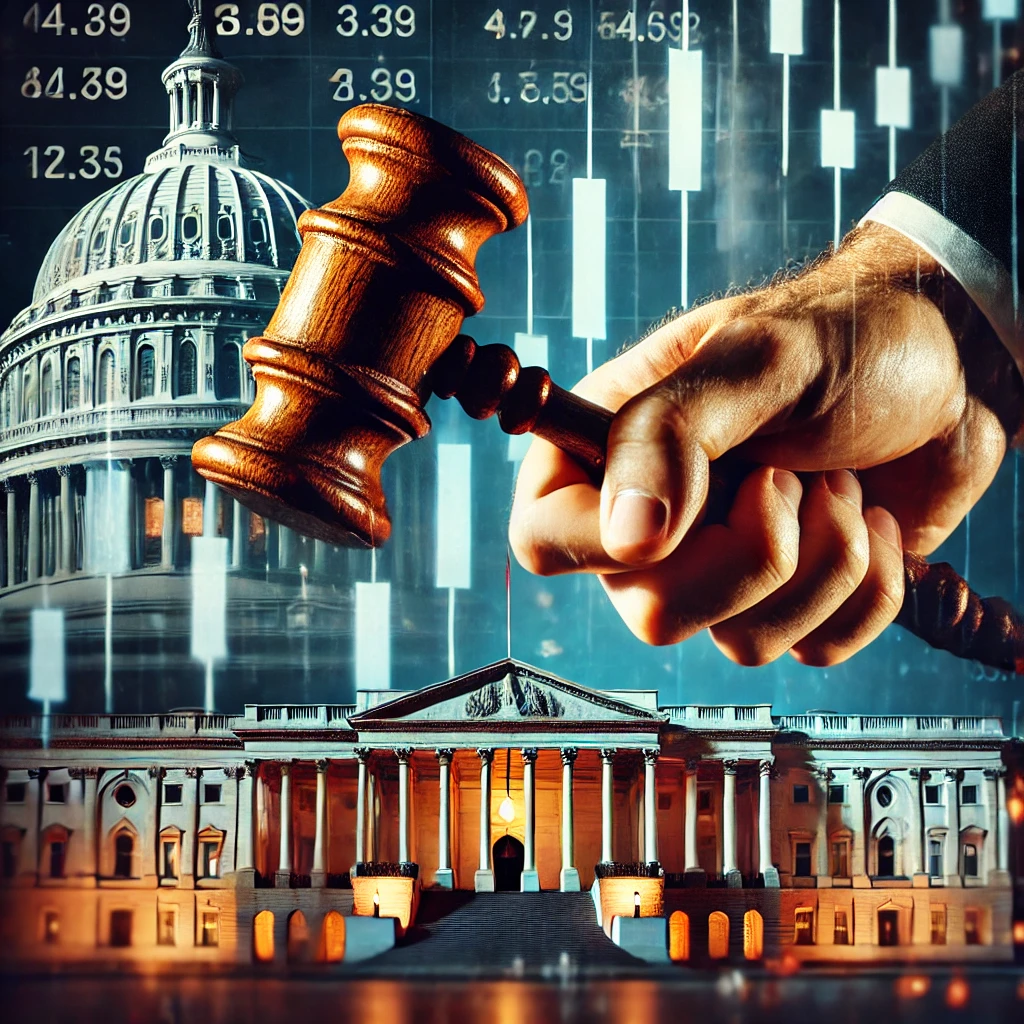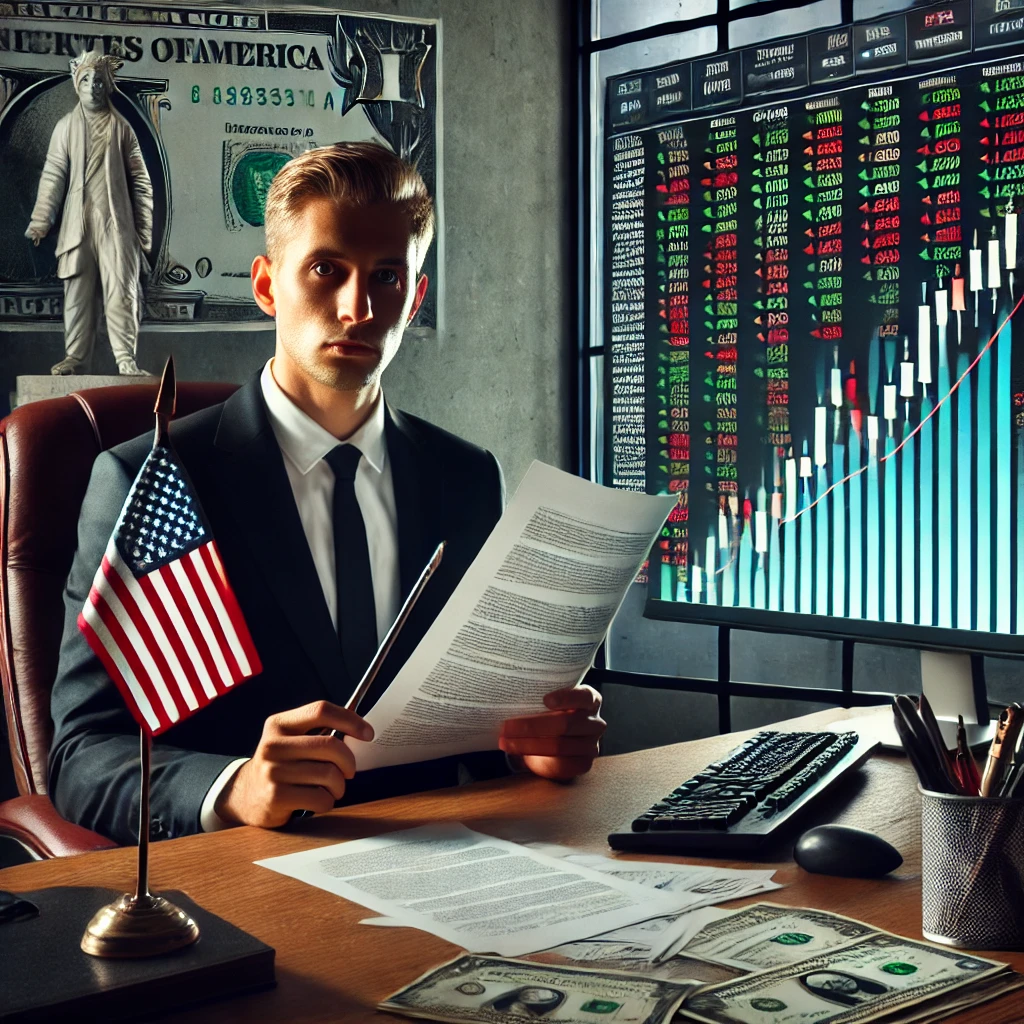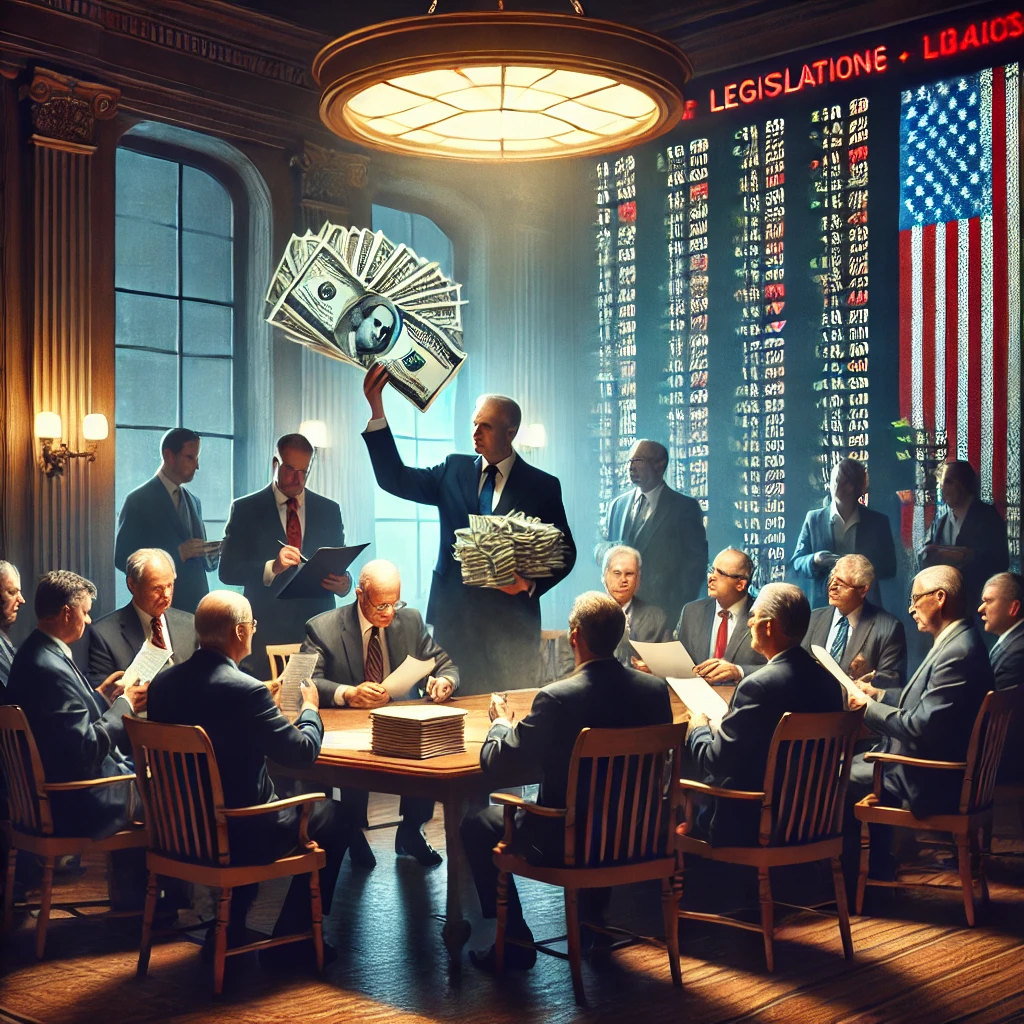
The intersection of politics and personal financial interests has long been a contentious issue in democracies, particularly in the United States. One of the most glaring examples of this conflict of interest arises when politicians who hold immense legislative power over corporations are allowed to engage in stock trading. While lawmakers craft policies that directly impact corporate regulations, taxes, and market environments, they are simultaneously permitted to invest in the very companies they regulate. This inherent conflict of interest not only erodes public trust but also creates the potential for corruption and self-serving legislation. It is imperative, therefore, to ban all investment trading for politicians who pull the levers of laws governing corporations.

The Inherent Conflict of Interest
The primary reason for banning stock trading by politicians is the unavoidable conflict of interest it creates. Legislators, by virtue of their positions, have access to insider knowledge—whether it’s forthcoming bills, regulatory changes, or early information about government contracts—that can significantly affect stock prices. Even if politicians do not intend to exploit this information, the perception of bias can severely undermine public confidence in the integrity of government. It is nearly impossible for lawmakers to act impartially if their financial portfolios could benefit from the decisions they make on behalf of the public.

In addition, the opportunity for financial gain may influence the drafting and passage of legislation. Lawmakers may be incentivized to pass laws that benefit industries in which they hold investments, even if those laws are not in the best interest of their constituents or the nation as a whole. Allowing politicians to trade stocks thus opens the door to corruption, where the lines between public service and personal enrichment become blurred.

Public Trust and the Appearance of Impropriety
Democracy rests on the idea that elected officials represent the will of the people, not their own financial interests. When politicians engage in stock trading, it casts doubt on their ability to govern fairly and ethically. Even if a lawmaker does not act on insider information, the mere fact that they could creates a perception of impropriety. This erosion of trust is especially dangerous in today’s polarized political climate, where faith in institutions is already under strain.

Recent scandals have only exacerbated public skepticism. Numerous instances have emerged where lawmakers were found to have traded stocks shortly before key legislative announcements. These actions, whether legal or not, fuel the belief that politicians are more interested in enriching themselves than serving the public good. Banning investment trading for politicians would be a critical step toward restoring trust in government and ensuring that lawmakers prioritize their constituents over personal gain.

Insider Trading Laws Are Not Enough
Some might argue that existing insider trading laws, such as the STOCK Act (Stop Trading on Congressional Knowledge Act) of 2012, provide sufficient oversight and deterrence against financial misconduct by politicians. While the STOCK Act requires lawmakers to disclose their trades, it has proven ineffective in preventing unethical behavior. In practice, many lawmakers are slow to report trades, or they do so in ways that make it difficult for the public to track conflicts of interest. Moreover, the penalties for violating the STOCK Act are minimal, offering little incentive for lawmakers to fully comply.

A more comprehensive solution would be to prohibit politicians from engaging in any form of stock trading or direct investment while in office. By banning investments altogether, we eliminate the gray areas that existing laws fail to address and create a clear standard for ethical behavior. Lawmakers who truly seek to serve the public should have no issue with such a ban, as it would reinforce their commitment to representing their constituents without bias.

Alternatives to Stock Trading: Blind Trusts and Index Funds
To ensure that lawmakers are not financially disadvantaged while in office, there are several alternatives to direct stock trading. Politicians could place their assets in blind trusts, which would be managed by third-party fiduciaries without any input or knowledge from the politician. Blind trusts are already a common mechanism used by presidents and other high-ranking officials to avoid conflicts of interest. This solution would ensure that politicians’ financial interests are managed ethically, without the possibility of undue influence on their legislative decisions.

Another alternative is to require politicians to invest only in broad-based index funds or government bonds. These investment vehicles track the overall performance of the market or are unrelated to specific industries, reducing the risk of conflicts of interest. By mandating such limitations, politicians can still save for retirement or other financial goals without being directly involved in stock trading or benefiting from insider knowledge.

A Necessary Step for Democracy
In a democratic system, transparency and accountability are essential. Allowing politicians to engage in stock trading while crafting the very laws that govern corporations is antithetical to these principles. It creates opportunities for corruption, undermines public trust, and threatens the integrity of legislative processes. Banning all investment trading for lawmakers is not just a symbolic gesture—it is a practical necessity for ensuring that elected officials act in the best interest of their constituents rather than their own financial gain. If we want to restore faith in government, we must start by removing the temptations and conflicts that cloud our lawmakers’ judgment. Banning stock trading for politicians is one of the most important steps we can take toward rebuilding a government that is truly by the people and for the people.






